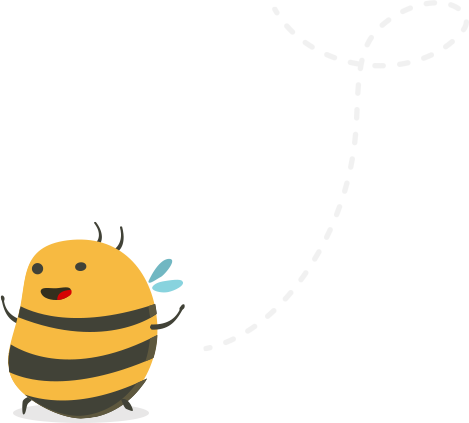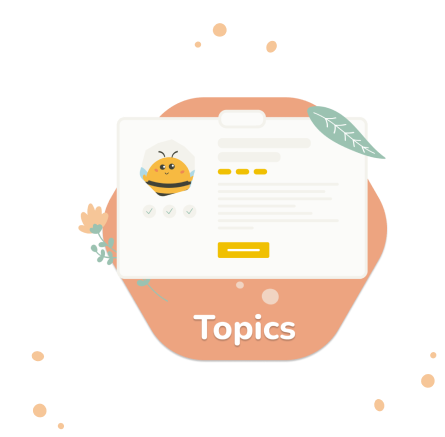Crafting a good user persona is a process full of new insights and thorough user research. In order to really create a persona that is representative of your target audience, you’ll need to talk to your users directly and conduct surveys and interviews to uncover their needs, pain points, preferences, and behavioral patterns. A set of right user persona questions to help in the process will save you some time and headache on creating them from scratch every time.
Below, you’ll find some of the most common categories of user persona questions as well as examples of questions themselves. Depending on what your product and persona will be focused on, you probably won’t need all of them in your research. Choose the ones that correspond to your research goals and don’t hesitate to alter them to fit your project’s specific needs!
Let’s dive in.
User persona questions to ask in survey or interview

- Demographics questions
- Questions about profession
- Question about physical and social environment
- Questions about technical environment
- Questions about goals and motivations
- Questions about values, fears and challenges
- Questions about personal preferences and traits
- Buyer behavior questions
- Ask about competitors and preferred brands
- Questions specific to your product/service
Demographics question
Demographic questions help to find out the most basic information you need to know about your users. These are the questions about their age, location, occupation, etc.
Although those are important, keep in mind that they should not be the key focus of your research. Most of the time, demographics play a minor role in helping you inform design decisions and make the product better. So, make sure to only ask relevant questions about your user’s demographics, so that you don’t introduce bias.
- How old are you?
- Which city and country do you currently reside in?
- What is your highest level of education?
- What is your marital status?
- Do you have any children? If so, how many and what are their ages?
- What is your primary language?
- What is your household income range?
Depending on your case, you might need to step out from the basic demographic questions and ask something a bit more specific, in order to get more context on something that is important to your product.
For example, if you’re designing a fitness app, you’d want to delve deeper into specific questions like, “How many marathons have you participated in the past year?” or “What’s your average running pace?”.
Questions about profession
Profession-centric questions help in understanding the daily lives, responsibilities, and challenges of users in their work environment. They’ll help you get a better idea of users’ daily struggles, skills, things they are passionate about, decision-making processes, etc.
Additionally, by asking about the tools they use and love in their work, you’re able to understand what software and features are helpful and intuitive for them.
- What is your current job position?
- How long have you been in this role/industry?
- What tasks or responsibilities are involved in your day-to-day work?
- Are you currently looking for job opportunities? If yes, in what field or role?
- How did you get into your current profession?
- What industry do you work in?
- What is your biggest work challenge? How are you handling it?
- What skills, knowledge, tools, and experience does your job require?
- Which of those required tools do you love to use? Which ones frustrate you? Why?
Questions about physical and social environment
Knowledge about a user’s living situation, social activities, and travel habits will help you tailor the products to better fit their lifestyles and even schedules.
Physical and social environments influence one’s behavior heavily, so it’s important to be aware of them in order to know how they are affecting the habits and decisions of your users.
- Who do you live with? (e.g., alone, with family, friends, or partner)
- How would you describe your social circle?
- What kind of social activities do you regularly participate in?
- How often do you travel for leisure or work?
- How do you usually spend your weekends?
- How important is it for you to engage in community events?
- Do you have any pets? If so, what kind?
- What type of neighborhood do you live in (urban, suburban, rural)?
- How do you commute to work or school?
- How often do you engage in physical activities or sports?
Questions about technical environment
It’s important to know what devices, platforms, social media channels, and other software your users interact with on a daily. This will help to design products that integrate well with existing tech habits and cater to the user’s level of technical know-how.
You’ll get a better idea of how much time they spend online and what they do there, which will also allow you to brainstorm ways in which your product can become a part of their lives.
- What devices do you use on a daily basis? (e.g., smartphone, laptop, tablet)
- What are your preferred operating systems and why?
- How would you rate your technical proficiency? (Beginner, Intermediate, Expert)
- Which social media platforms do you actively use?
- Are there any specific apps or software that you can’t live without?
- What browser do you primarily use?
- How do you protect your online privacy and security?
- Do you use any smart home devices or wearables?
User persona questions about goals and motivations
These questions uncover the motivations behind our users’ actions. What drives them and keeps them going every day? Answers to those questions will help to generate empathy towards the user and understand their priorities as well as potential hidden needs.
- What are your short-term goals?
- What are your long-term aspirations?
- What motivates you the most in your personal and professional life?
- How do you define success?
- What are the top three things you want to achieve this year?
- Do you have any personal projects or side hustles?
- How do you prioritize your tasks or goals?
- Who or what inspires you?
- What skills or knowledge are you currently aiming to acquire?
Questions about values, fears, and challenges
Questions about your users’ fears and values are crucial for understanding their pain points and struggles. Answering those will help to make sure your product addresses real-life concerns, aligns with users’ values and provides solutions to existing challenges.
Knowing this kind of information will help you remain user-centered and relevant at all times.
- What values are most important to you?
- What are your biggest fears or concerns related to your profession or personal life?
- What challenges do you face regularly?
- How do you typically overcome them?
- What prevents you from achieving your goals?
- What would you like to change or improve about yourself?
- What’s a challenge you’ve recently overcome, and how did you do it?
- How do you make decisions when faced with difficult choices?
- What sources do you trust for advice or guidance?
- What role does family/partner play in your life choices and decisions?
- How do you handle feedback or criticism?
Questions about personal preferences and traits
Questions in this category will help you find out more about your user as a real person and understand how they act better. They’ll shed some light on your users’ hobbies, favorite websites or apps, routines, and character traits.
- How would you describe your personality?
- What are your hobbies or interests?
- How do you usually handle stress?
- Do you prefer working independently or in a team?
- What are the apps you use on a daily?
- Where do you read the news?
- What type of content do you like to consume? (e.g., books, movies, articles)
- How would you describe your communication style?
- What’s your preferred learning method (visual, auditory, hands-on)?
- How often do you seek out new experiences or adventures?
- What are some habits you’re proud of?
- Do you consider yourself more of a planner or a spontaneous person?
- How do you spend the weekends?
Buyer behavior questions
Understanding buyer behavior is central to any business. These questions explore how users make purchasing decisions, their shopping habits, and the factors that influence these choices.
You may need to alter those questions a bit to fit the context of your product or service.
- How do you usually research a product or service before making a purchase?
- What factors influence your purchasing decisions the most?
- How often do you shop online versus in-store?
- Are you loyal to specific brands, or do you like trying new ones?
- What was the last big purchase you made, and why?
- How do you feel about impulse purchases?
- How often do you return or exchange products?
- Do you usually read reviews before purchasing a product?
- Are there any deal-breakers when considering a purchase (e.g., poor customer service, high shipping costs)?
- How often do you make purchases on sale or with discounts?
Ask about competitors and preferred brands
Keeping an eye on the competitors, their offerings, key strengths, and weaknesses is essential for improving your own product and staying competitive.
Find out what brands your users trust and why, as well as which ones they avoid. This will help you define what matters to them in terms of product and customer service.
- Which brands do you trust the most, and why?
- Are there any brands or products you avoid? Why?
- When thinking about [specific industry/product], which competitors come to mind?
- What makes you choose one brand over another in [specific industry/product]?
- Are there any recent brand campaigns or advertisements that have caught your attention? Why?
- Which brand’s loyalty program, if any, are you a part of?
- How important are ethical considerations (like sustainability) when choosing a brand?
- Do you have brand loyalties passed down from family or friends?
- How often do you engage with brands on social media?
- Are there brands you’ve had particularly good or bad customer service experiences with?
User persona questions specific to your product/service
The questions in this category can vary, depending on the stage your product is currently at.
If you’re creating a user persona for an existing product, here are some of the questions that might help:
- What challenges or problems does our product/service solve for you?
- Is there anything you dislike or would change about our product/service?
- How often do you use our product/service?
- Would you recommend our product/service to others? Why or why not?
- What features of our product/service are most valuable to you?
- How does our product/service compare to alternatives you’ve tried?
- Are there additional features or benefits you wish our product/service had?
However, if you don’t have the product yet and is creating a user persona to inform the future design and development process, here are the questions to ask:
- What current solutions or products do you use to address [specific problem or need]?
- What frustrations or challenges do you face with the current solutions you use?
- How would you envision an ideal solution to [specific problem or need]?
- Are there features or functionalities you wish existed but haven’t found in current products?
- How often do you encounter the problem or need that [proposed product idea] aims to address?
- Would you be open to trying a new solution for [specific problem or need]? Why or why not?
- What factors would influence your decision to adopt a new product or solution in this space?
Ready to ask these user persona questions?

Crafting the right user persona questions is key to uncovering the insights you need to inform the design and development process of a successful product. Use the questions above to save some time on writing your own and start gathering information!
And remember – UXtweak is always here to assist you with user research, surveys, and interviews!


